40 lunar eclipse diagram labeled
Look at diagram 2 above. What type of eclipse is shown based on the alignment of the Earth, Sun, and Moon? - 25154190 See also the Dial-A-Moon for the May 26 total lunar eclipse. Click on the image to download a high-resolution version with feature labels and additional graphics. Hover over the image to reveal the animation frame number, which can be used to locate and download the corresponding frame from any of the animations on this page, including unlabeled high-resolution Moon images.
Description: Lunar eclipse illustrated flat line style artistic labeled diagram with sun and orbits of earth and moon. Sunlight trajectory with earths ...€7.99 · In stock
Lunar eclipse diagram labeled
Fast Facts What are lunar phases and eclipses? The moonlight we see on Earth is sunlight reflected off the Moon's grayish-white surface. The amount of Moon we see changes over the month — lunar phases — because the Moon orbits Earth and Earth orbits the Sun. Everything is moving. During a lunar eclipse, Earth comes between the Sun and the Moon, blocking the sunlight falling on the Moon. More precise names are labeled and described on both the table and the diagram. ... A lunar eclipse, where the earth blocks sunlight from reaching the moon, can occur 0-3 times per year. It occurs ... In this eclipses worksheet, students will compare diagrams of a total solar eclipse with a total lunar eclipse. Source: ecdn.teacherspayteachers.com. A useful worksheet to check students knowledge of the three types of solar eclipses. Source: s15753.pcdn.co
Lunar eclipse diagram labeled. Click on the eclipse Date to see a diagram of the eclipse and a world map showing where it is visible from. Although penumbral lunar eclipses are included in ...Missing: labeled | Must include: labeled Solar eclipse Lunar eclipse (i) A solar eclipse occurs on a new moon day. (ii) If and only if the sun, the moon and the earth are in the same plane and fall in one line, the solar eclipse occurs. (iii) The maximum duration of total solar eclipse is 7 minutes and 20 seconds (440 seconds). (i) A lunar eclipse occurs on a full moon day. May 26, 2017 - Diagram of a solar and a lunar eclipse for students to label. Includes a master teacher copy and a blank worksheet for students to fill out. Lunar Eclipse Diagram ... This shows the geometry of a lunar eclipse. When the Sun, Earth, and Moon, are precisely aligned, a lunar eclipse will occur. During an ...
Meteoroids are objects in space that range in size from dust grains to small asteroids. Think of them as "space rocks." When meteoroids enter Earth's atmosphere (or that of another planet, like Mars) at high speed and burn up, the fireballs or "shooting stars" are called meteors.. When a meteoroid survives a trip through the atmosphere and hits the ground, it's called a meteorite. An eclipse diagram for Wednesday morning's Total Lunar Eclipse [Graphic from NASA's Scientific Visualization Studio] As long as the skies are clear, stargazers on the West Coast will be able to see the total lunar eclipse above the western horizon starting at 4:11 a.m. PST lasting a total of 15 minutes. 3. Enjoy the glimpse of the lunar eclipse with naked eyes. 4. Solar eclipse can only be observed in a few places. 4. Lunar eclipse can easily be observed in many places. 5. Solar eclipse lasts for about 5 to seven minutes. 5. Lunar eclipse lasts for an hour. 6. Solar eclipse occurs once in 18 months. 6. Lunar eclipse occurs twice a year. Lunar Eclipse Definition. In our solar system, an eclipse happens when a celestial object, such as a planet or moon, passes between another planet or moon and its light source, the sun.
The Equinox (Vernal & Autumnal) There are only two times of the year when the Earth's axis is tilted neither toward nor away from the sun, resulting in a "nearly" equal amount of daylight and darkness at all latitudes. These events are referred to as Equinoxes.The word equinox is derived from two Latin words - aequus (equal) and nox (night). Q. 4. Draw and label the diagrams. (1) Total and partial solar eclipse. (2) Total and partial lunar eclipse. 5. Answer the following: (1) Why do the sun, the moon and the earth not lie in one and the same line on every full moon and new moon day? Answer: The orbital path of the earth and that of the moon are not in the same plane. You might also like · Lunar Eclipse- The Moon · Label the Solar Eclipse Printout · Solar Eclipses · Label Moon Phases Diagram Printout · Astronomy Label Me! Lunar eclipse definition is - an eclipse in which the full moon passes partially or wholly through the umbra of the earth's shadow.
The lunar cycle, i.e. the passage from one New Moon to another New Moon, takes about 30 days to complete. From the southern hemisphere, meanwhile, a crescent moon (from new moon to full moon) increases its phase from left to right. First of all, the Moon has to be full, so there is only a chance of a lunar eclipse about once a month.
Earth Earth's Moon Missions Moon Supermoon Lunar Eclipse Moon Calendar Moon Phases Apollo en Español video tutorial Building With Paper Moons Sun Jump To. Materials. 1. Print it out. 2. Shade it in. 3. Cut it out. 4. Punch a hole. 5. Tape it. 6. Poke a hole. 7. Put it together. 8. Try it out! Get the Newsletter.
The picture shows a model of a cell. What is the main function of the cell part labeled Yin the model?
The next total lunar eclipse, or "blood moon," will occur May 15-16, 2022 and it will be visible from North and South America, Europe, Africa, and parts of Asia. Another total lunar eclipse will ...
Events for the deep partial lunar eclipse on the morning of November 19, 2021. This version is labeled for Universal Time (UT). Other versions are available for EST, CST, MST, PST, and unlabeled.Please refer to the table above for corresponding times in various time zones.
Events for the total lunar eclipse on the morning of May 26, 2021. This version is labeled for Universal Time. Please refer to the table below for corresponding times in various time zones.
This is a cutaway diagram of the Hubble Space Telescope, with components labeled. The forward shell houses the telescope's optical assembly. In the middle of the telescope are the reaction wheels and the bays that house the observatory's control electronics. The aft shroud houses the scientific instruments, gyroscopes, and star trackers.
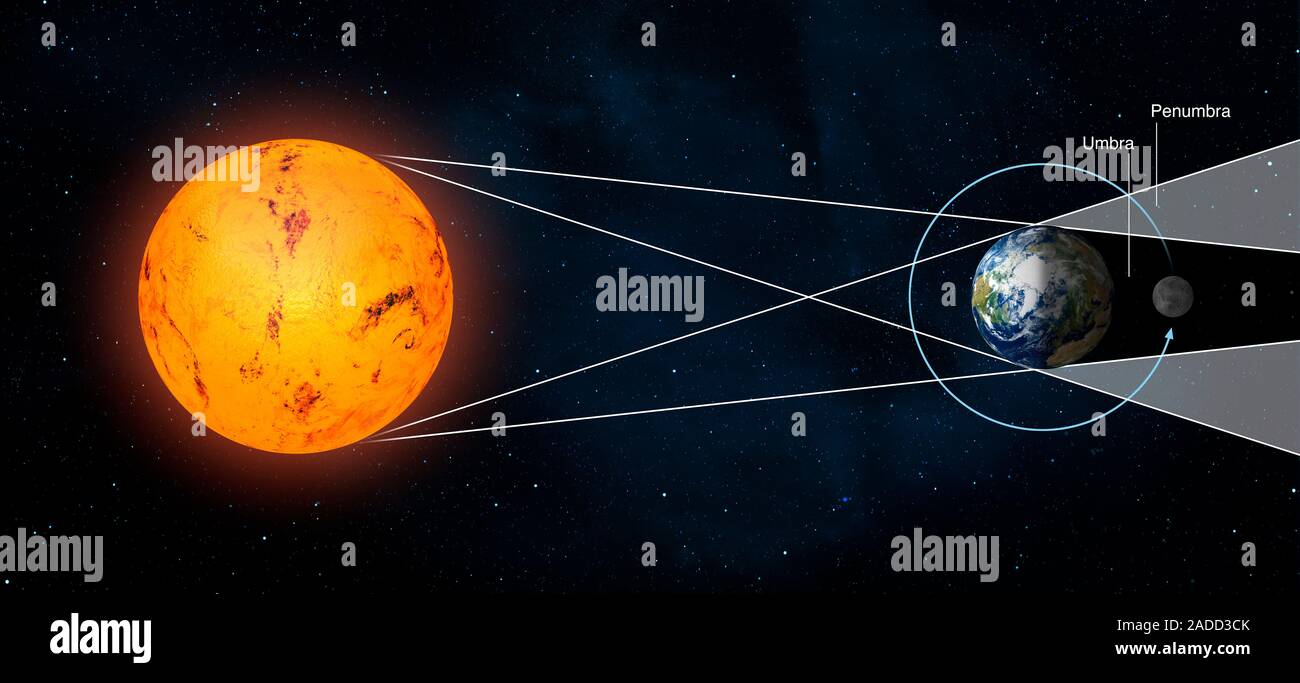
Total Lunar Eclipse Geometry Illustration Total Lunar Eclipses Occur When The Earth Moves Completely Between The Sun And The Moon The Lines In This Stock Photo Alamy
Which diagram represents the alignment of the Earth, Moon and Sun during a spring ... Astudent made a graph plotting the progress of a reaction over time. the student forgot to label the y-axis of the graph. a graph is shown with two graph lines. one graph line starts at a higher position on the y axis and slopes downwards towards the right ...
In general, we see 8 major phases of the moon. Sometimes, its shape is full, half, or just a sliver. Full moon, new moon, half-moon, quarter moon, waning moon and crescent moons are the phases of the moon. The sun always lights up half of the moon. Then, the other half of it is in complete darkness. The moonlight we see is just reflected sunlight.
Micky made the following diagram shown to represent the lunar eclipse. Earth is shown as a circle with water and land represented on it. On its left i … s a smaller circle labeled as Moon. On the left of the moon is the sun. Rays are shown from sun towards the moon and Earth and the shadow of the moon falls on Earth.
The data in the table for the entire year can be downloaded as a JSON file or as a text file. The animation archived on this page shows the geocentric phase, libration, position angle of the axis, and apparent diameter of the Moon throughout the year 2021, at hourly intervals. Until the end of 2021, the initial Dial-A-Moon image will be the ...
gggibbous and its usage. gggibbous extends the ggplot2 data visualization package to provide support for moon charts in R. Unlike the pie charts supported natively by coord_polar() in R, moon charts in gggibbous do not require any special coordinate system. They are drawn most similarly to points in ggplot2: their position is defined by an x and a y coordinate and their size is defined ...
The Short Answer: The Sun's corona is the outermost part of the Sun's atmosphere. The corona is usually hidden by the bright light of the Sun's surface. That makes it difficult to see without using special instruments. However, the corona can be viewed during a total solar eclipse . Our Sun is surrounded by a jacket of gases called an ...
Apr 8, 2014 — When Earth passes directly between the sun and the moon, a lunar eclipse takes place.
Lecture 9: Eclipses of the Sun & Moon. Key Ideas: Lunar Eclipses. Moon passes through the Earth's shadow; Total, Partial, & Penumbral lunar eclipses.
Draw a diagram showing the orbit of Earth and also the orbit that Earth"s Moon. Label the Sun, Earth, the M... You are watching: ... during a full lunar eclipse, the Earth, Sun, and also Moon space arranged in a line, and light from the S...
Comet Leonard's phase angle (β) will be greater than 120° from December 9th to 22nd, with a maximum β of 160° on December 14th. This could result in significant forward scattering and a subsequent surge in brightness. At its peak phase angle the comet will be burrowed deep in evening twilight just 15° from the Sun, but favorable geometry ...
UCR Today: Anatomy of Lunar Eclipse from ucrtoday.ucr.edu Designing and printing your own labels is simple to do with just a few clicks of your computer mouse. The.gov means it's official.federal government websites often end in.gov or.mil. The term product label is a general term used.
In this eclipses worksheet, students will compare diagrams of a total solar eclipse with a total lunar eclipse. Source: ecdn.teacherspayteachers.com. A useful worksheet to check students knowledge of the three types of solar eclipses. Source: s15753.pcdn.co
More precise names are labeled and described on both the table and the diagram. ... A lunar eclipse, where the earth blocks sunlight from reaching the moon, can occur 0-3 times per year. It occurs ...

Solar System Solar And Lunar Eclipse Diagrams To Label Solar And Lunar Eclipse Lunar Eclipse Lunar Eclipse Diagram
Fast Facts What are lunar phases and eclipses? The moonlight we see on Earth is sunlight reflected off the Moon's grayish-white surface. The amount of Moon we see changes over the month — lunar phases — because the Moon orbits Earth and Earth orbits the Sun. Everything is moving. During a lunar eclipse, Earth comes between the Sun and the Moon, blocking the sunlight falling on the Moon.

Let S Play Jeopardy Bell Ringer Draw A Solar Eclipse And A Lunar Eclipse Label The Umbra Penumbra Ppt Download
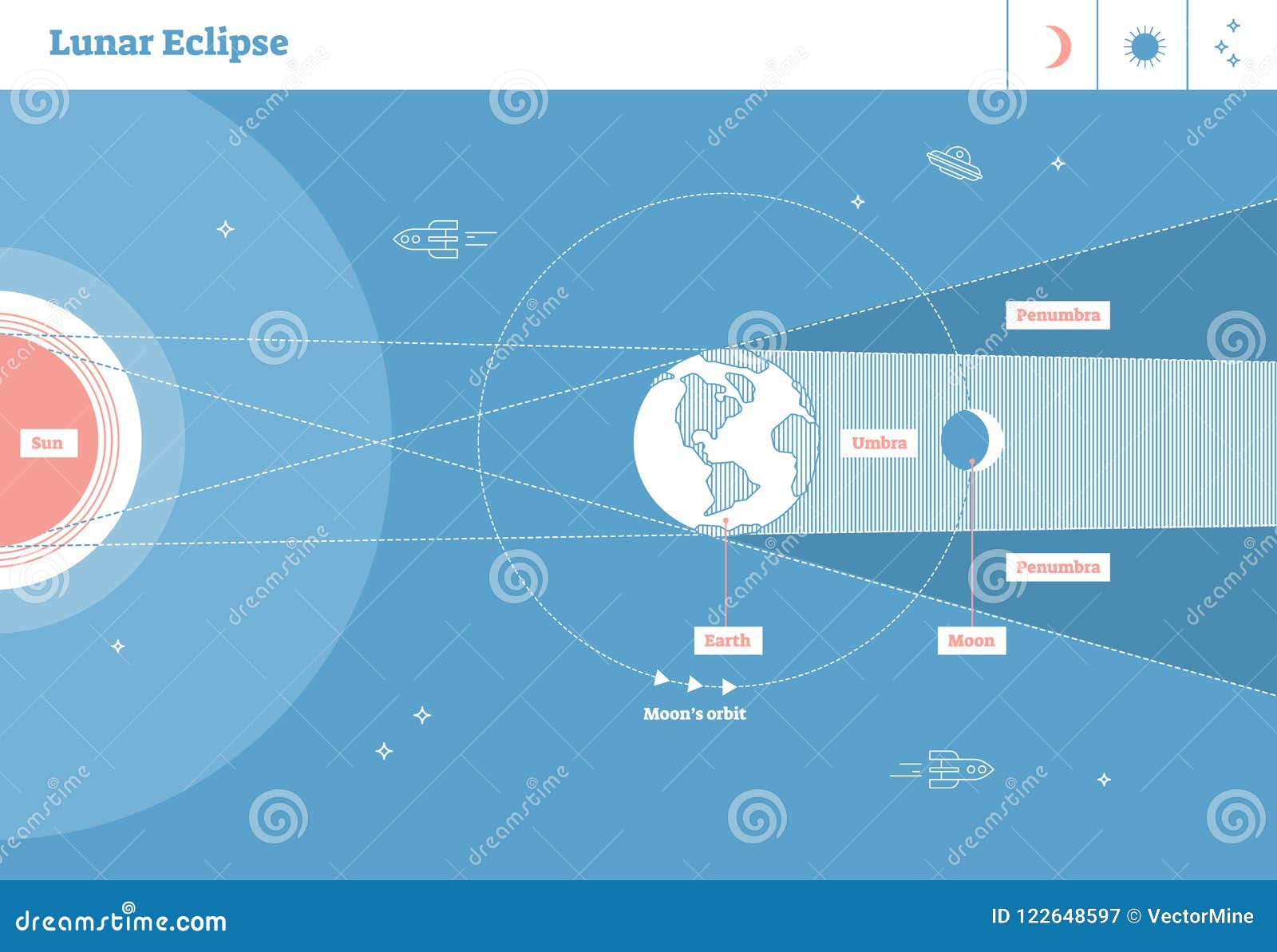
Lunar Eclipse Vector Illustration Diagram Scientific Planetary Cycle With Sun Earth And Moon Earth Shadow Penumbra And Umbra Stock Vector Illustration Of Astronomy Cosmos 122648597





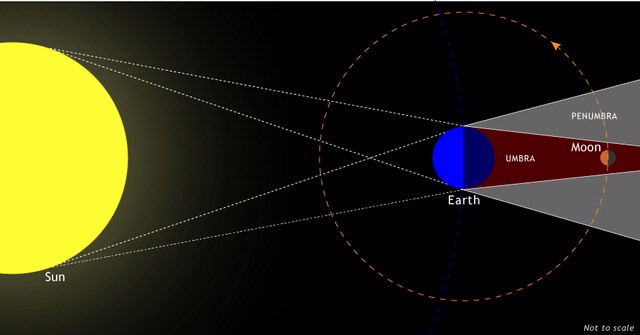
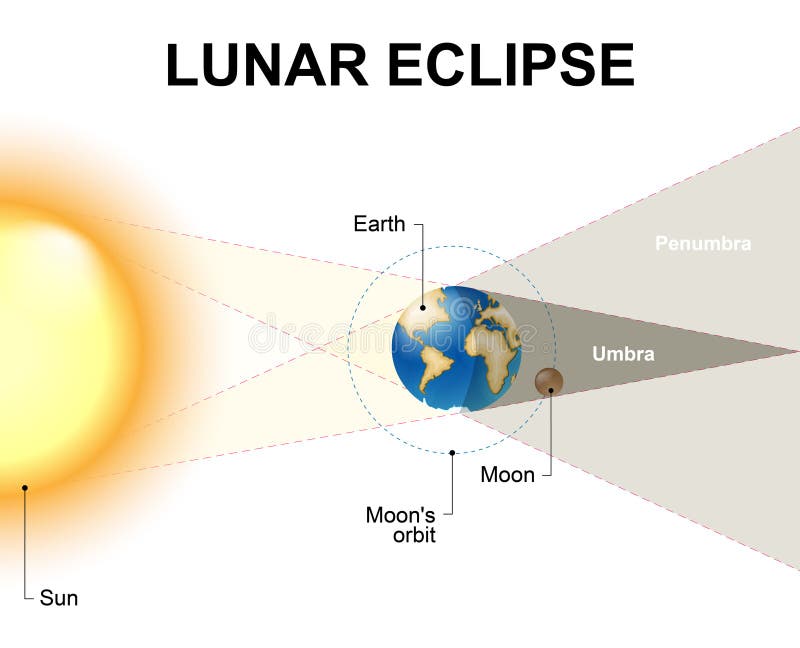
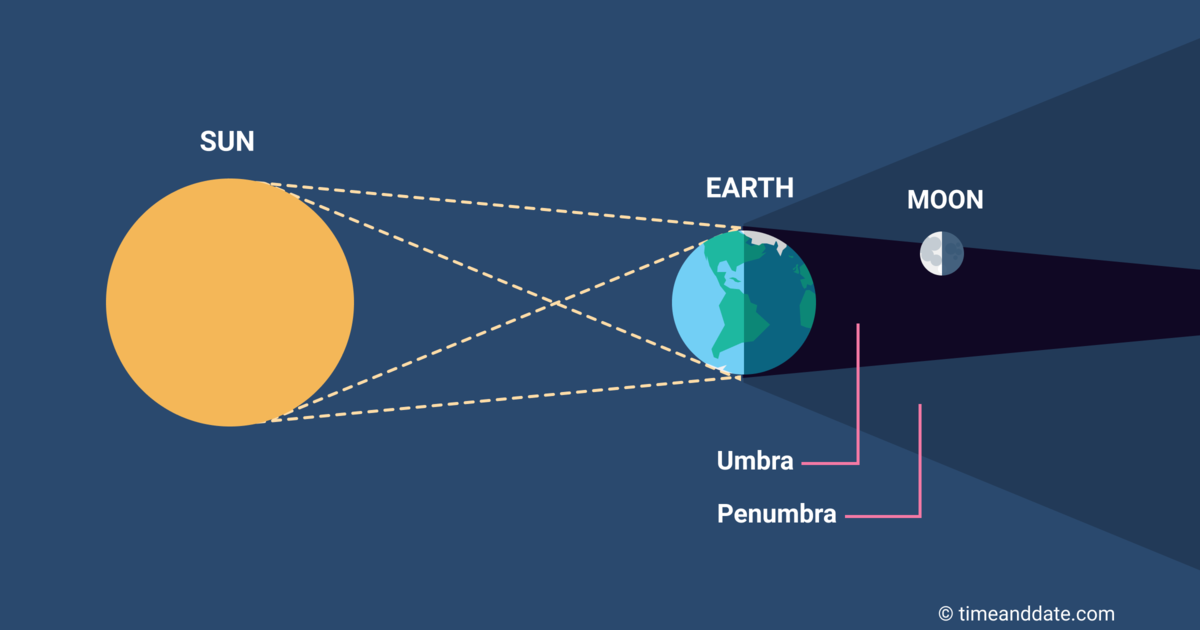
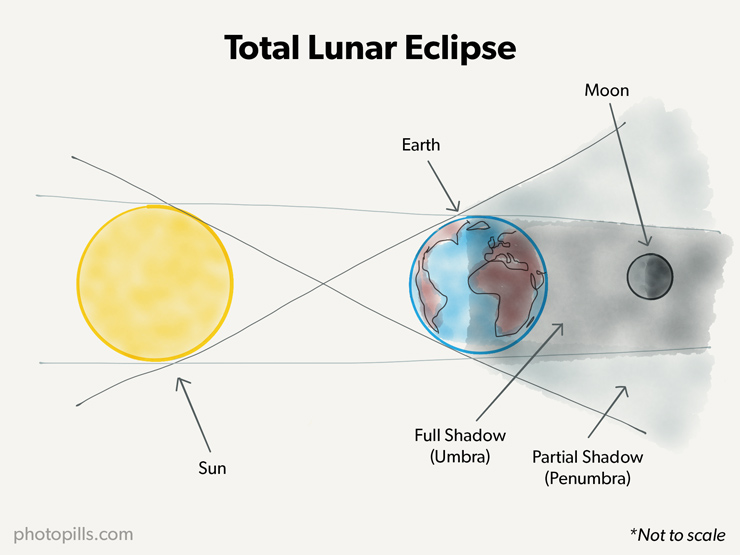

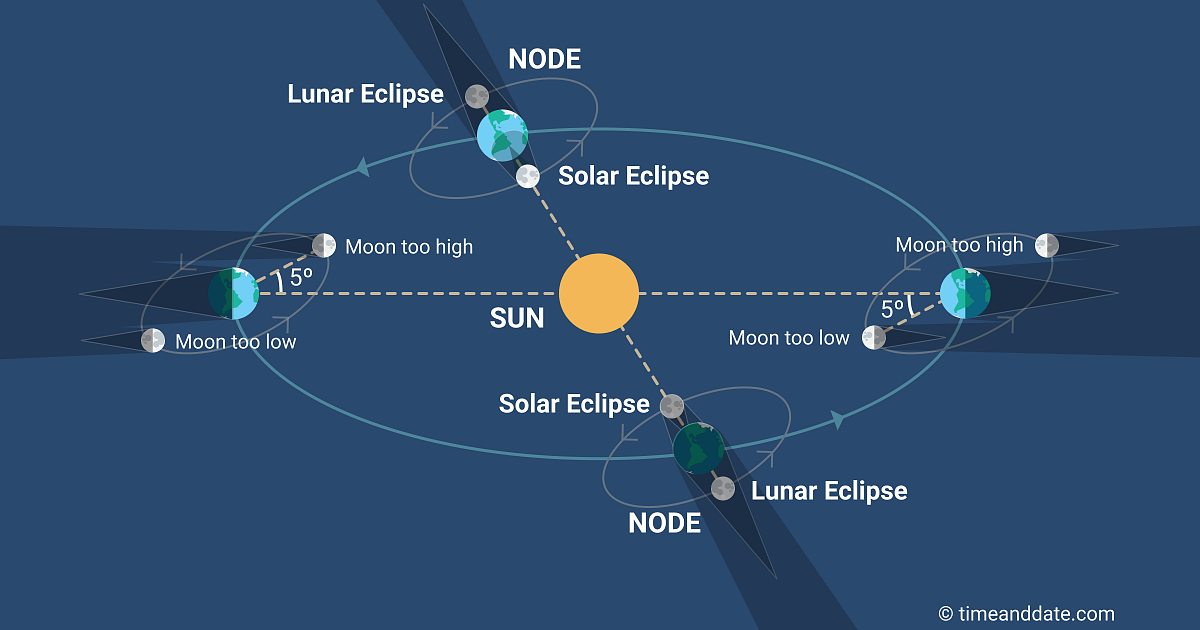

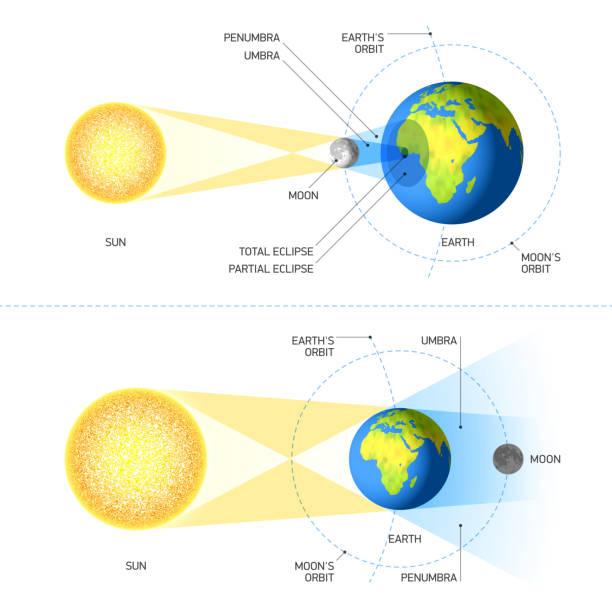





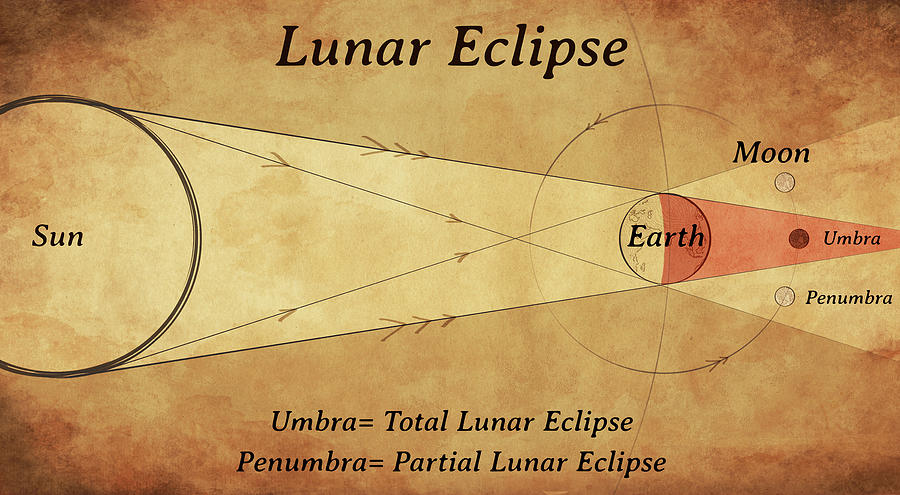


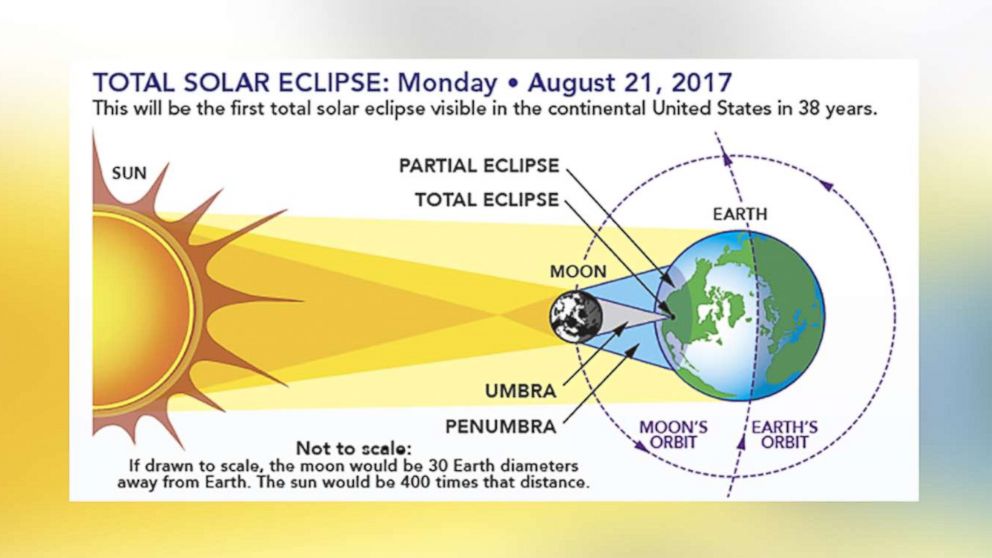


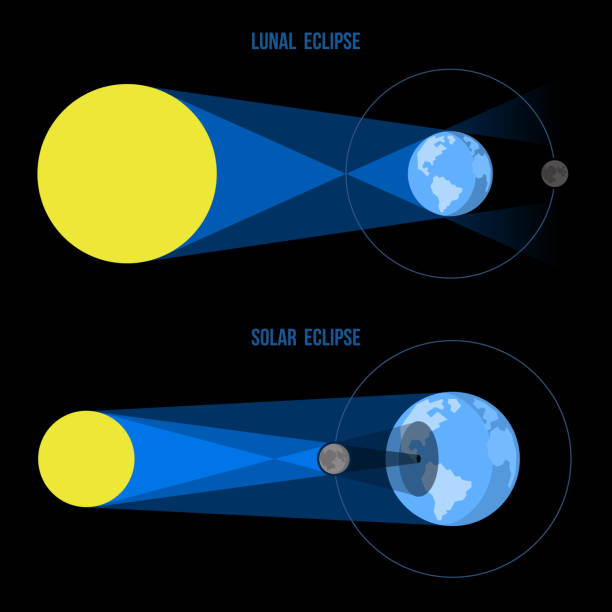
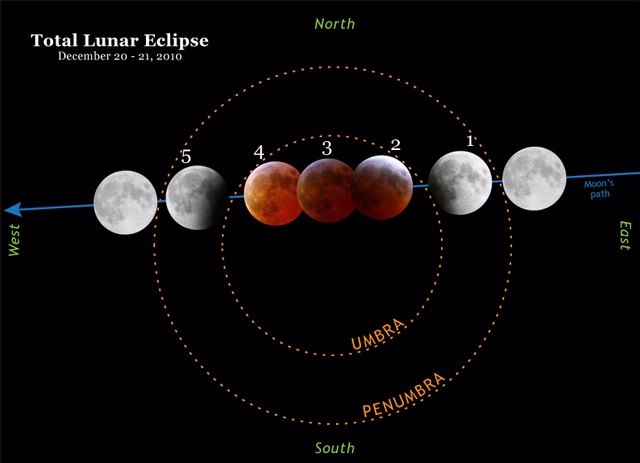
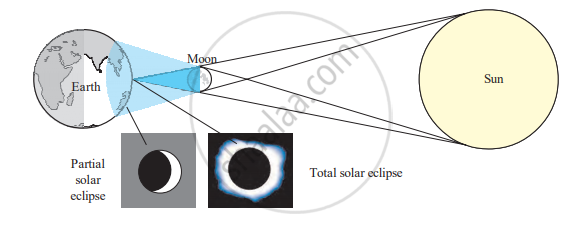


0 Response to "40 lunar eclipse diagram labeled"
Post a Comment